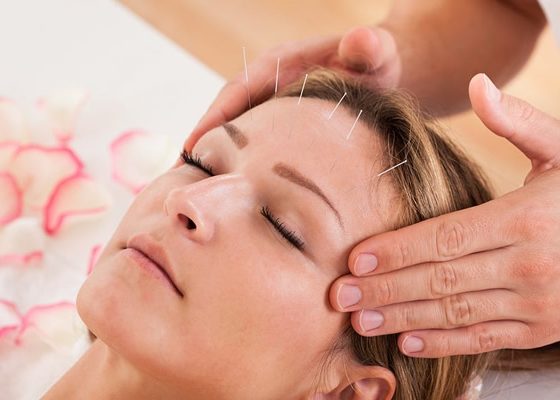
In our fast-paced modern world, the importance of self-care and relaxation cannot be overstated. The constant demands of work, family, and social obligations can leave us feeling drained, both physically and mentally. As a result, achieving wellness through self-care and relaxation has become a critical aspect of maintaining a balanced and healthy life. This comprehensive article will explore the various dimensions of self-care, the benefits of self-care practices, and how relaxation techniques can enhance overall well-being.
Understanding Self-Care

Self-care is a broad concept that encompasses all the activities and practices we engage in to maintain and improve our health and well-being. It is a proactive approach to health that involves recognizing and addressing our physical, emotional, mental, and spiritual needs. Self-care is not a one-size-fits-all concept; it varies greatly from person to person and can include a wide range of activities.
Types of Self-Care
- Physical Self-Care: This involves activities that improve physical health and fitness, such as regular exercise, a balanced diet, adequate sleep, and proper hygiene.
- Emotional Self-Care: This includes activities that help manage and express emotions in a healthy way, such as journaling, therapy, and engaging in hobbies.
- Mental Self-Care: This involves activities that stimulate the mind and reduce stress, such as reading, solving puzzles, and practicing mindfulness.
- Spiritual Self-Care: This includes practices that nurture the soul and provide a sense of purpose and connection, such as meditation, prayer, and spending time in nature.
- Social Self-Care: This involves maintaining healthy relationships and social connections, which can provide support and enhance our sense of belonging.
The Benefits of Self-Care
The benefits of self-care are numerous and far-reaching, impacting various aspects of our lives. By prioritizing self-care, we can improve our overall health and well-being, enhance our quality of life, and prevent burnout. Here are some key benefits of self-care:
1. Improved Physical Health
Regular self-care practices can lead to significant improvements in physical health. Engaging in activities such as exercise, balanced nutrition, and adequate sleep helps to maintain a healthy weight, boost the immune system, and reduce the risk of chronic diseases. Physical self-care also includes preventive measures such as regular medical check-ups and managing chronic conditions.
2. Enhanced Mental Health
Mental health is a critical component of overall wellness, and self-care practices can play a vital role in maintaining and improving it. Activities such as mindfulness meditation, journaling, and engaging in hobbies can help reduce stress, anxiety, and depression. By taking time to relax and recharge, we can improve our cognitive function, enhance creativity, and boost our mood.
3. Emotional Balance
Self-care helps in managing emotions effectively. By engaging in activities that bring joy and relaxation, we can better cope with negative emotions and reduce emotional fatigue. Practices such as therapy, talking to a trusted friend, or engaging in creative activities can help us process our feelings and maintain emotional balance.
4. Increased Productivity
Taking time for self-care can actually enhance productivity. When we are well-rested and in good health, we are more focused, efficient, and effective in our tasks. Regular breaks and relaxation techniques can prevent burnout and keep us motivated and energized.
5. Better Relationships
Practicing self-care can also improve our relationships. When we take care of ourselves, we are better able to care for others. By managing stress and maintaining emotional balance, we can communicate more effectively, show empathy, and build stronger, healthier relationships.
Relaxation Techniques for Wellness

Relaxation is a critical component of self-care. It involves taking time to unwind and reduce stress, which can have profound effects on our health and well-being. Here are some effective relaxation techniques that can be incorporated into a self-care routine:
1. Mindfulness Meditation
Mindfulness meditation involves focusing on the present moment without judgment. This practice can help reduce stress, improve concentration, and enhance emotional regulation. To practice mindfulness meditation, find a quiet place, sit comfortably, and focus on your breath. If your mind wanders, gently bring your attention back to your breath.
2. Deep Breathing Exercises
Deep breathing exercises can help activate the body’s relaxation response. One simple technique is diaphragmatic breathing, where you breathe deeply from your diaphragm rather than shallowly from your chest. Inhale slowly through your nose, allowing your abdomen to rise, and exhale slowly through your mouth.
3. Progressive Muscle Relaxation
Progressive muscle relaxation involves tensing and then relaxing different muscle groups in the body. This technique can help reduce physical tension and promote a sense of calm. Start by tensing the muscles in your toes, hold for a few seconds, and then release. Gradually work your way up through each muscle group.
4. Yoga
Yoga combines physical postures, breathing exercises, and meditation to promote relaxation and overall wellness. Regular practice can improve flexibility, strength, and mental clarity. Yoga can be tailored to individual needs, making it a versatile relaxation technique.
5. Aromatherapy
Aromatherapy involves using essential oils to promote relaxation and well-being. Scents such as lavender, chamomile, and eucalyptus are known for their calming properties. You can use essential oils in a diffuser, add a few drops to a warm bath, or apply them to your skin (diluted with a carrier oil).
6. Guided Imagery
Guided imagery involves visualizing peaceful and calming scenes to promote relaxation. This technique can help reduce stress and anxiety. Find a quiet place, close your eyes, and imagine a serene setting, such as a beach or a forest. Focus on the details of the scene and immerse yourself in the experience.
Creating a Self-Care Routine
Developing a self-care routine involves identifying activities that bring joy, relaxation, and fulfillment. Here are some steps to create an effective self-care routine:
1. Assess Your Needs
Start by assessing your physical, emotional, mental, and spiritual needs. Consider what areas of your life require more attention and care. Reflect on what activities make you feel relaxed and rejuvenated.
2. Set Realistic Goals
Set realistic and achievable self-care goals. It’s important to start small and gradually incorporate more activities into your routine. For example, you might start with a short daily meditation session and gradually increase the duration.
3. Schedule Self-Care Time
Make self-care a priority by scheduling dedicated time for it. Treat self-care appointments with the same importance as work or social commitments. Consistency is key to reaping the benefits of self-care.
4. Be Flexible
Life is unpredictable, and it’s essential to be flexible with your self-care routine. If something doesn’t go as planned, don’t be too hard on yourself. Adjust your routine as needed and find alternative ways to practice self-care.
5. Listen to Your Body
Pay attention to your body’s signals and adjust your self-care practices accordingly. If you’re feeling tired, prioritize rest. If you’re feeling stressed, engage in relaxation techniques.
Overcoming Barriers to Self-Care
Despite the clear benefits of self-care, many people find it challenging to prioritize it. Here are some common barriers to self-care and strategies to overcome them:
1. Time Constraints
One of the most common barriers to self-care is a lack of time. To overcome this, try incorporating self-care activities into your daily routine. For example, take short breaks throughout the day to stretch, meditate, or take a walk.
2. Guilt
Many people feel guilty about taking time for themselves, especially if they have caregiving responsibilities. It’s important to remember that self-care is not selfish; it enables you to be more present and effective in your roles.
3. Financial Constraints
Self-care doesn’t have to be expensive. Many effective self-care practices, such as deep breathing exercises, mindfulness meditation, and nature walks, are free or low-cost. Focus on activities that fit within your budget.
4. Lack of Awareness
Some people may not be aware of the importance of self-care or how to practice it effectively. Educating yourself about the benefits of self-care and exploring different activities can help you develop a more comprehensive self-care routine.
The Role of Technology in Self-Care
In today’s digital age, technology can play a supportive role in self-care practices. There are numerous apps and online resources available that can help you manage stress, track your health, and practice relaxation techniques. Here are some examples:
1. Meditation Apps
Apps such as Headspace, Calm, and Insight Timer offer guided meditation sessions, breathing exercises, and mindfulness practices that can help reduce stress and promote relaxation.
2. Fitness Apps
Fitness apps like MyFitnessPal, Nike Training Club, and Strava can help you stay active and track your physical activity. Regular exercise is a crucial component of physical self-care.
3. Sleep Apps
Apps like Sleep Cycle and Pillow can monitor your sleep patterns and provide insights into improving your sleep quality. Adequate sleep is essential for overall health and well-being.
4. Mental Health Apps
Apps such as BetterHelp and Talkspace offer online therapy sessions with licensed professionals, providing convenient access to mental health support.
Conclusion
Achieving wellness through self-care and relaxation is a journey that requires commitment and consistency. The benefits of self-care are profound, impacting our physical, mental, emotional, and spiritual well-being. By prioritizing self-care and incorporating relaxation techniques into our daily lives, we can improve our overall health, enhance our quality of life, and foster a sense of balance and fulfillment. Remember, self-care is not a luxury; it is a necessity for a healthy, happy life.






